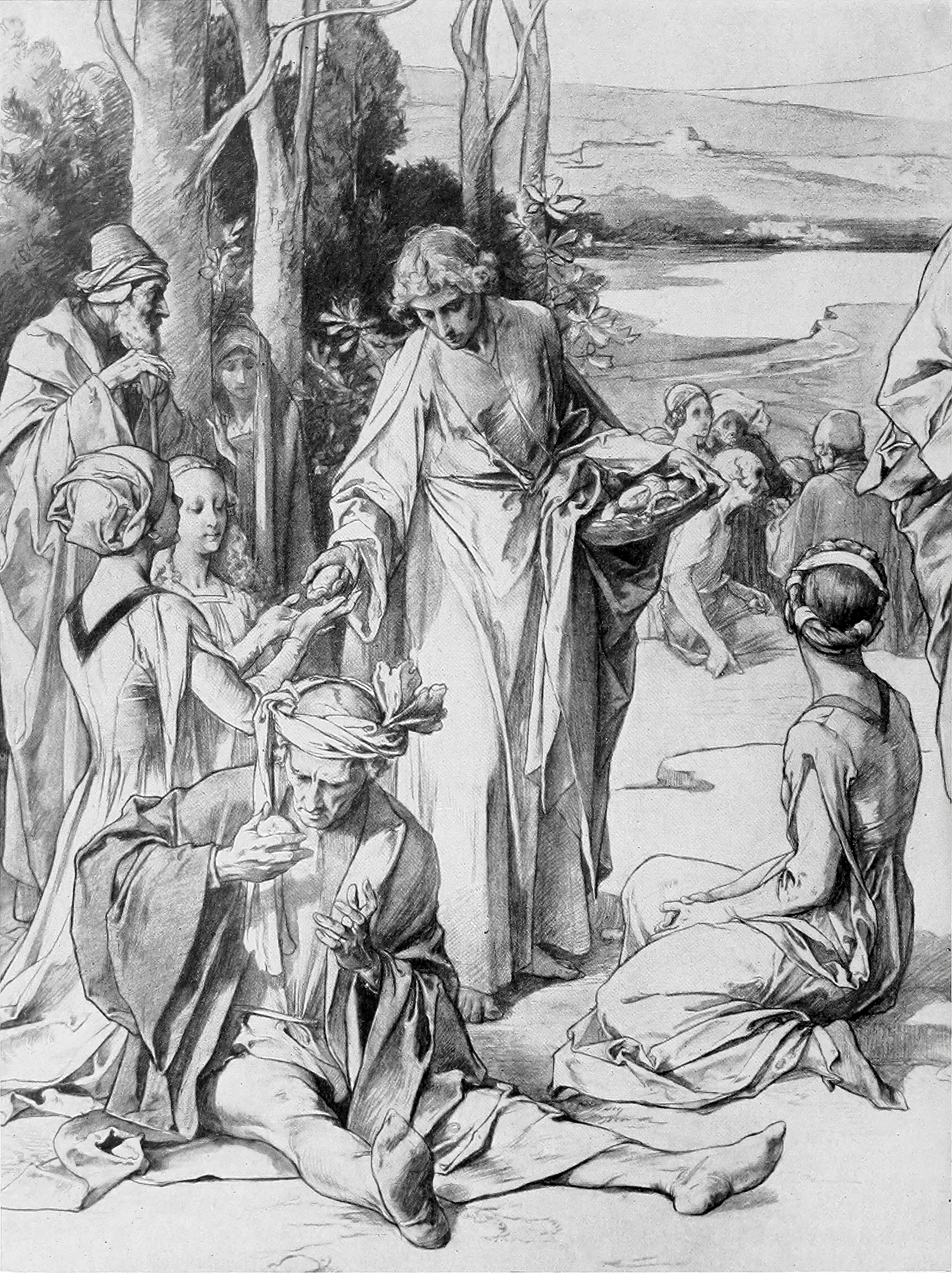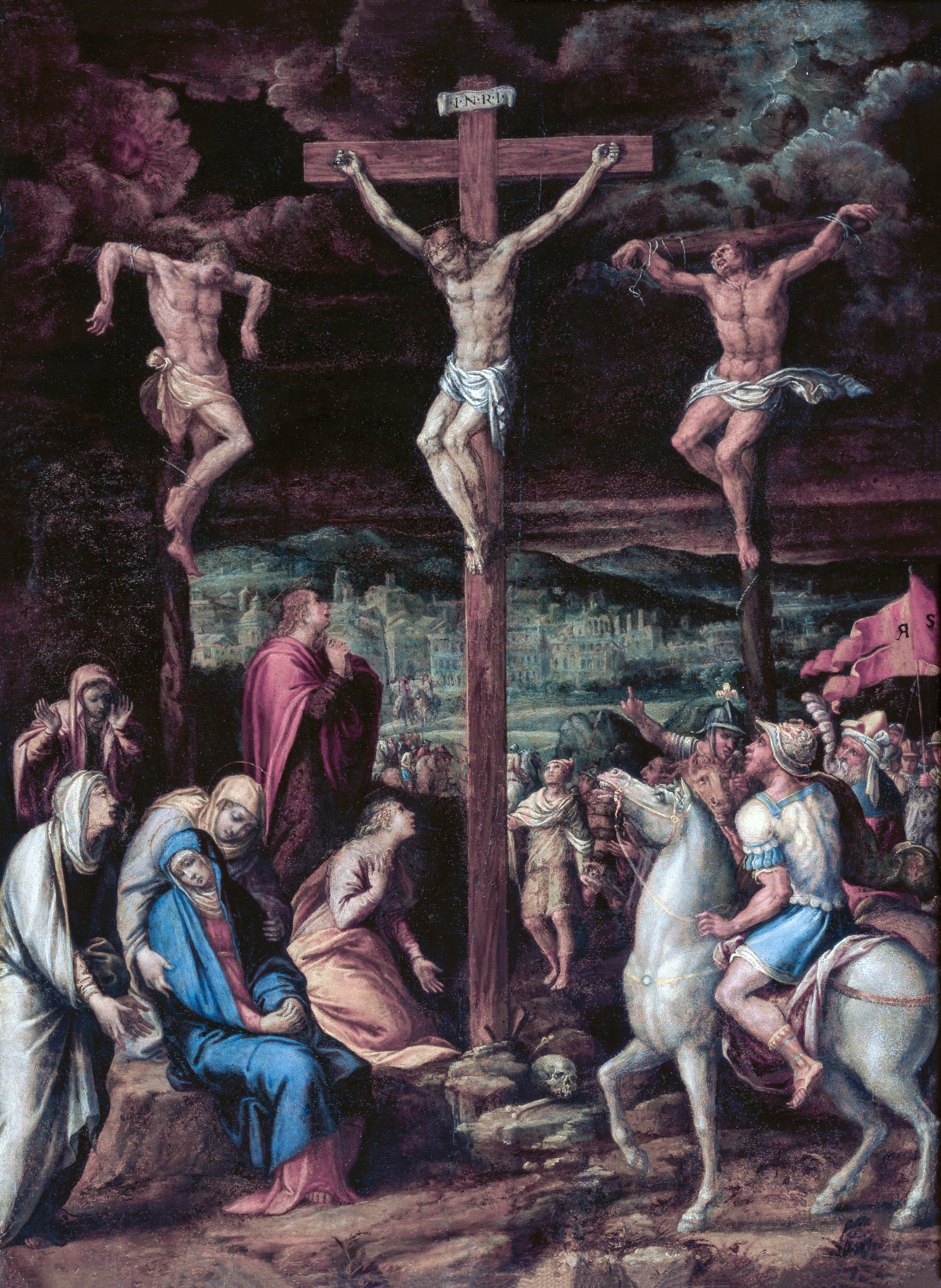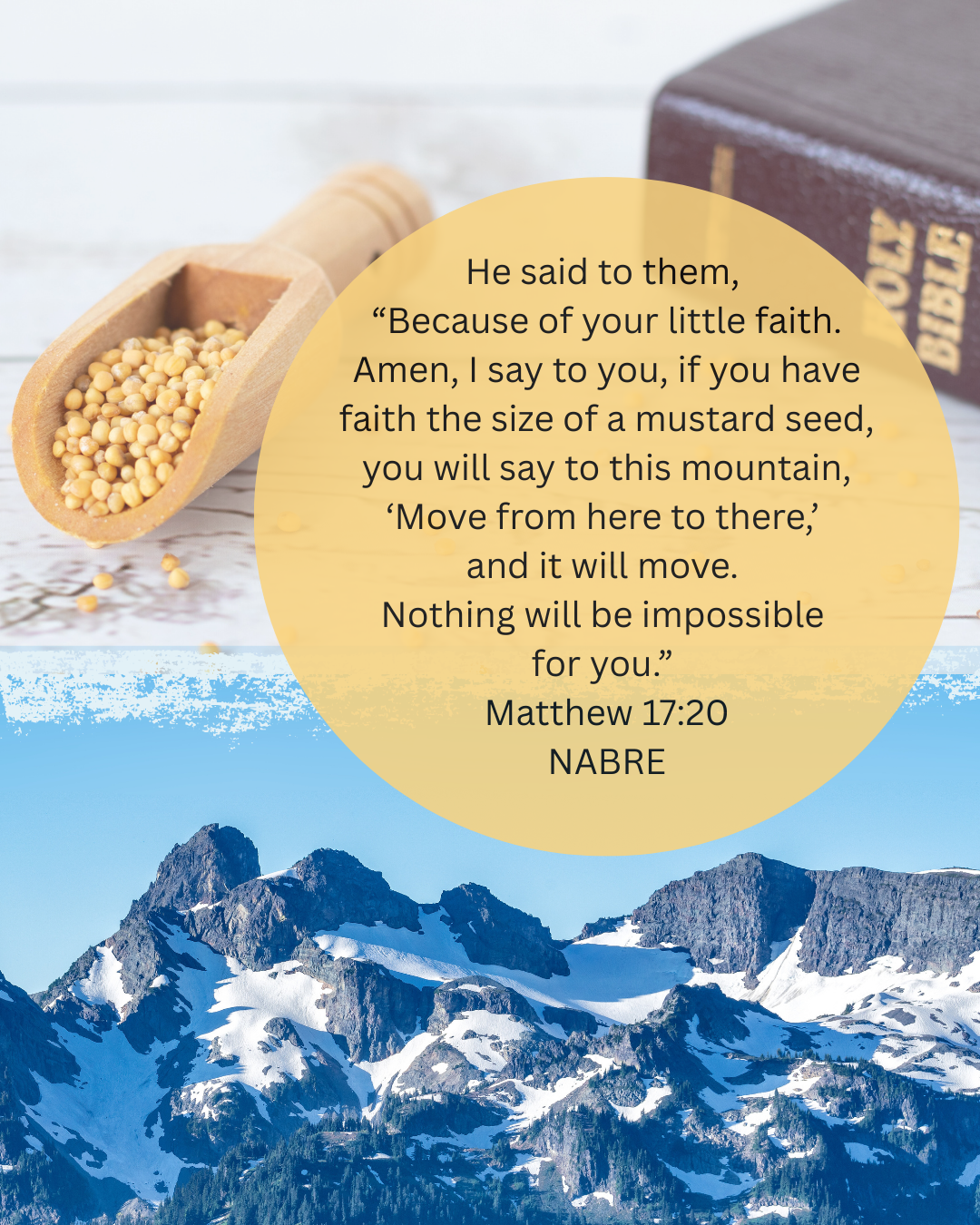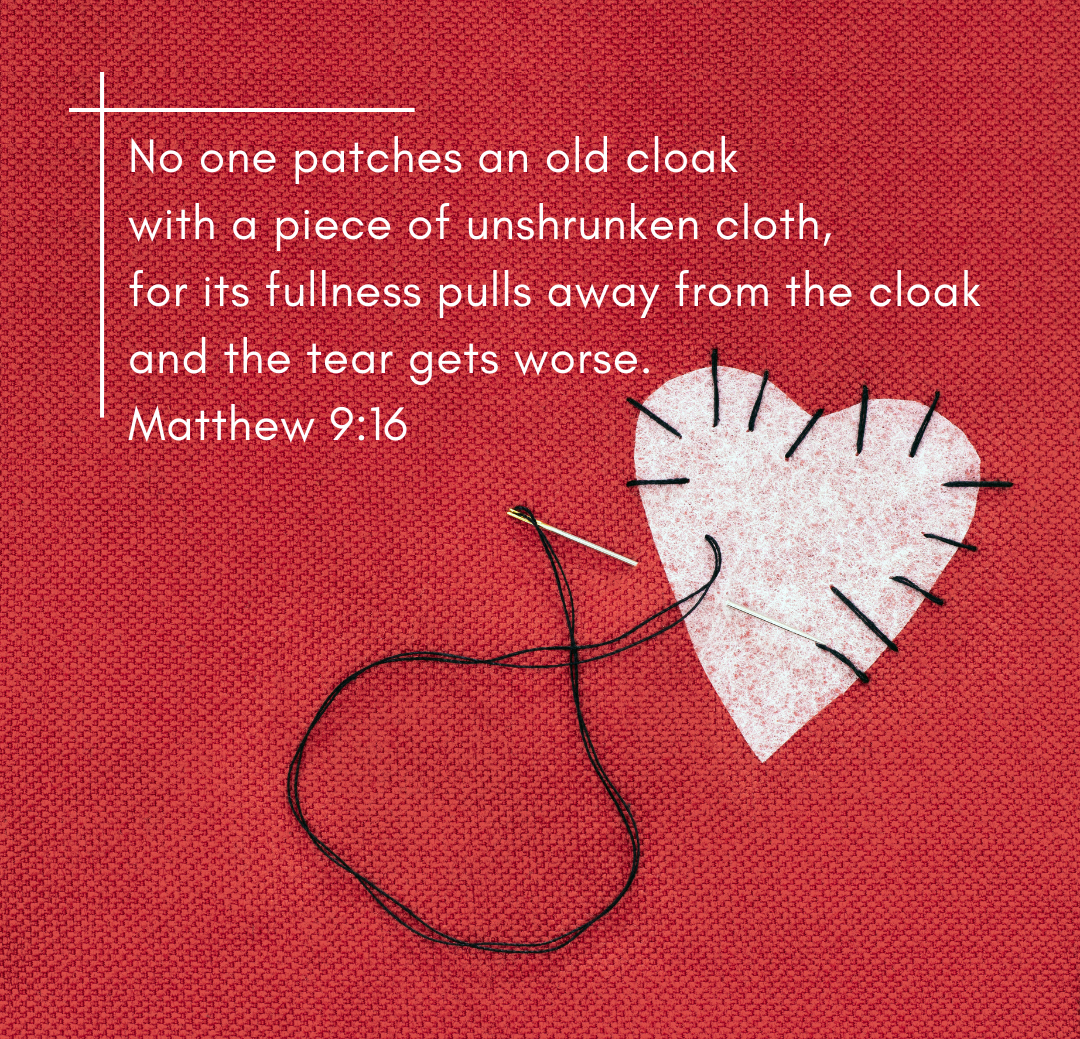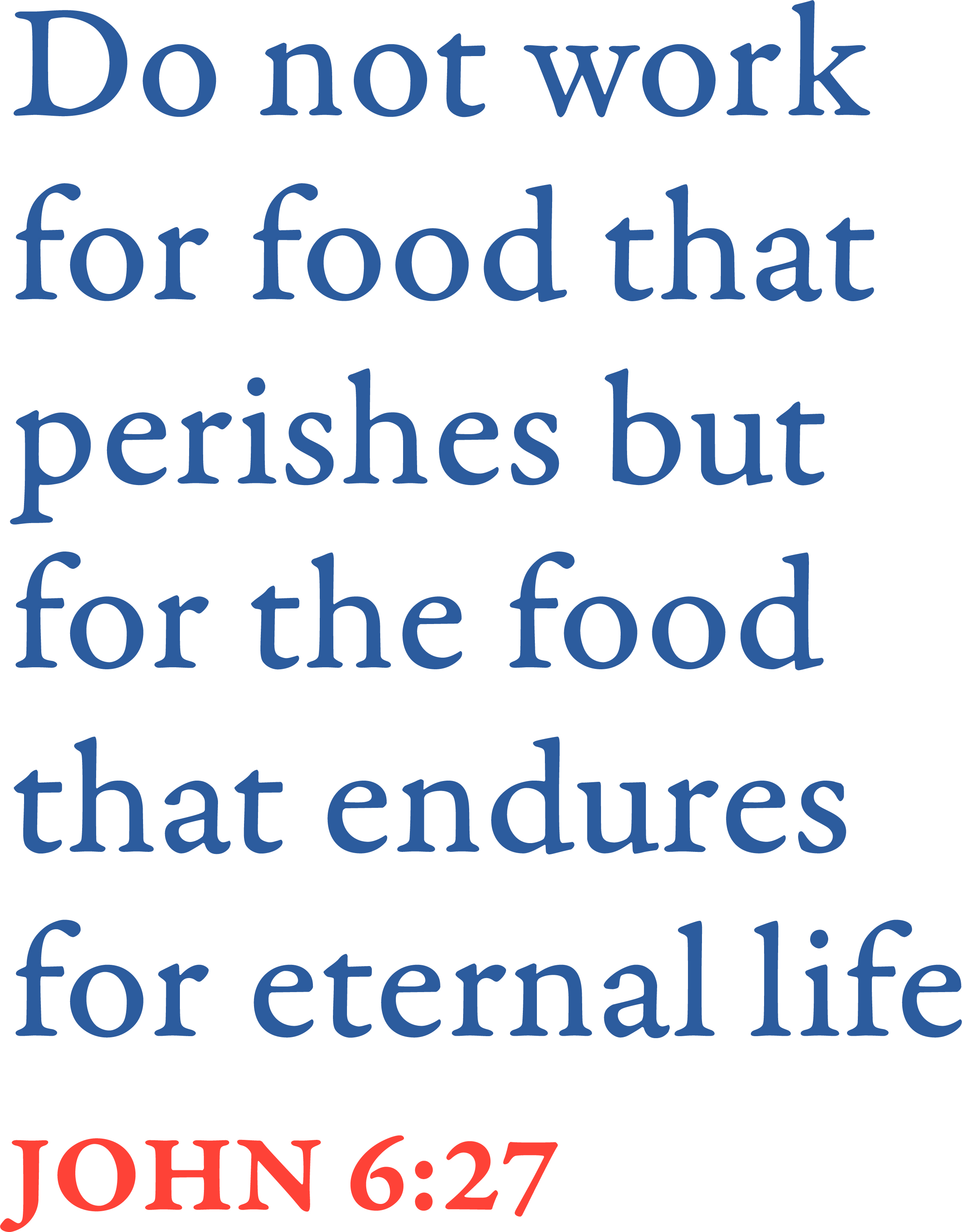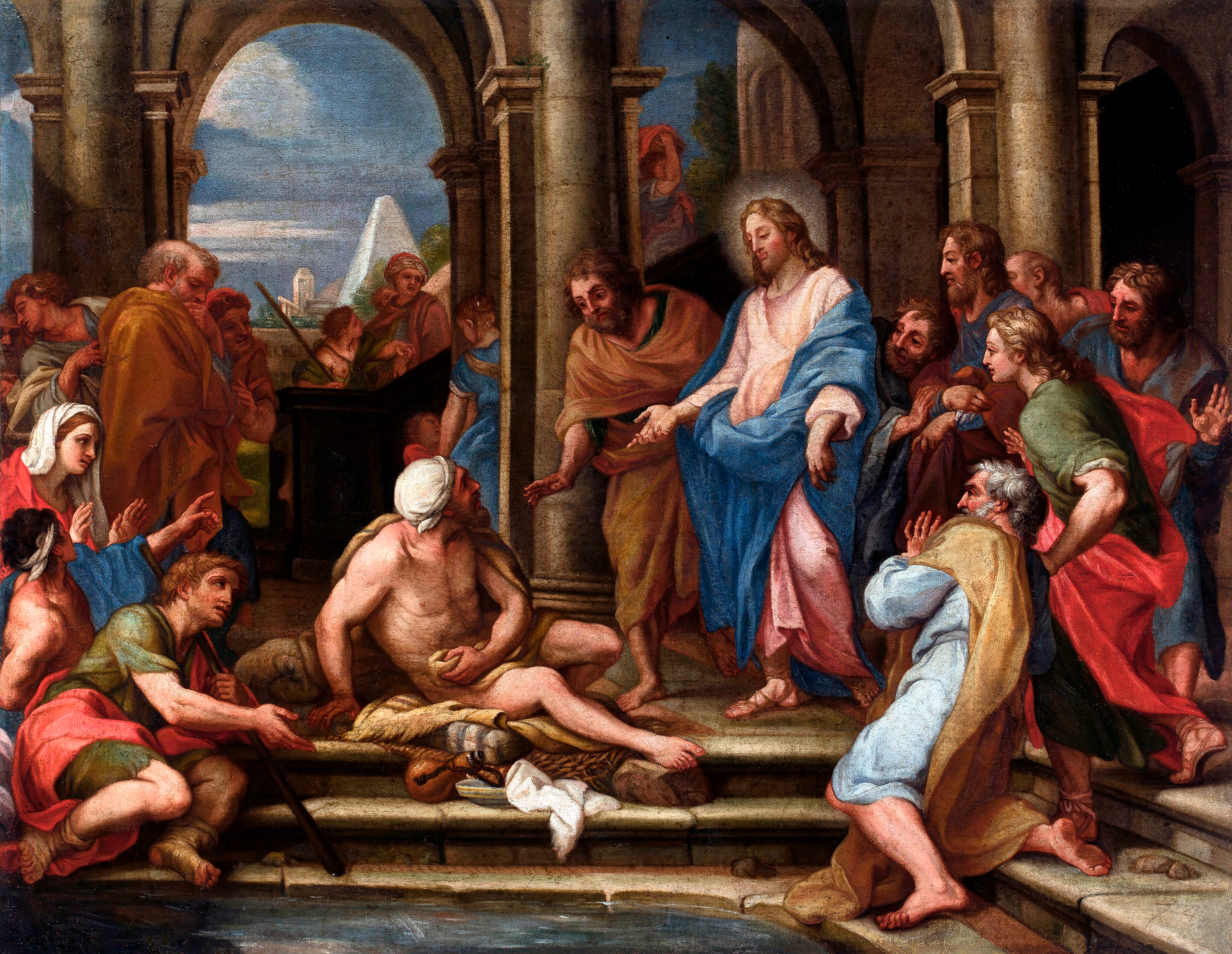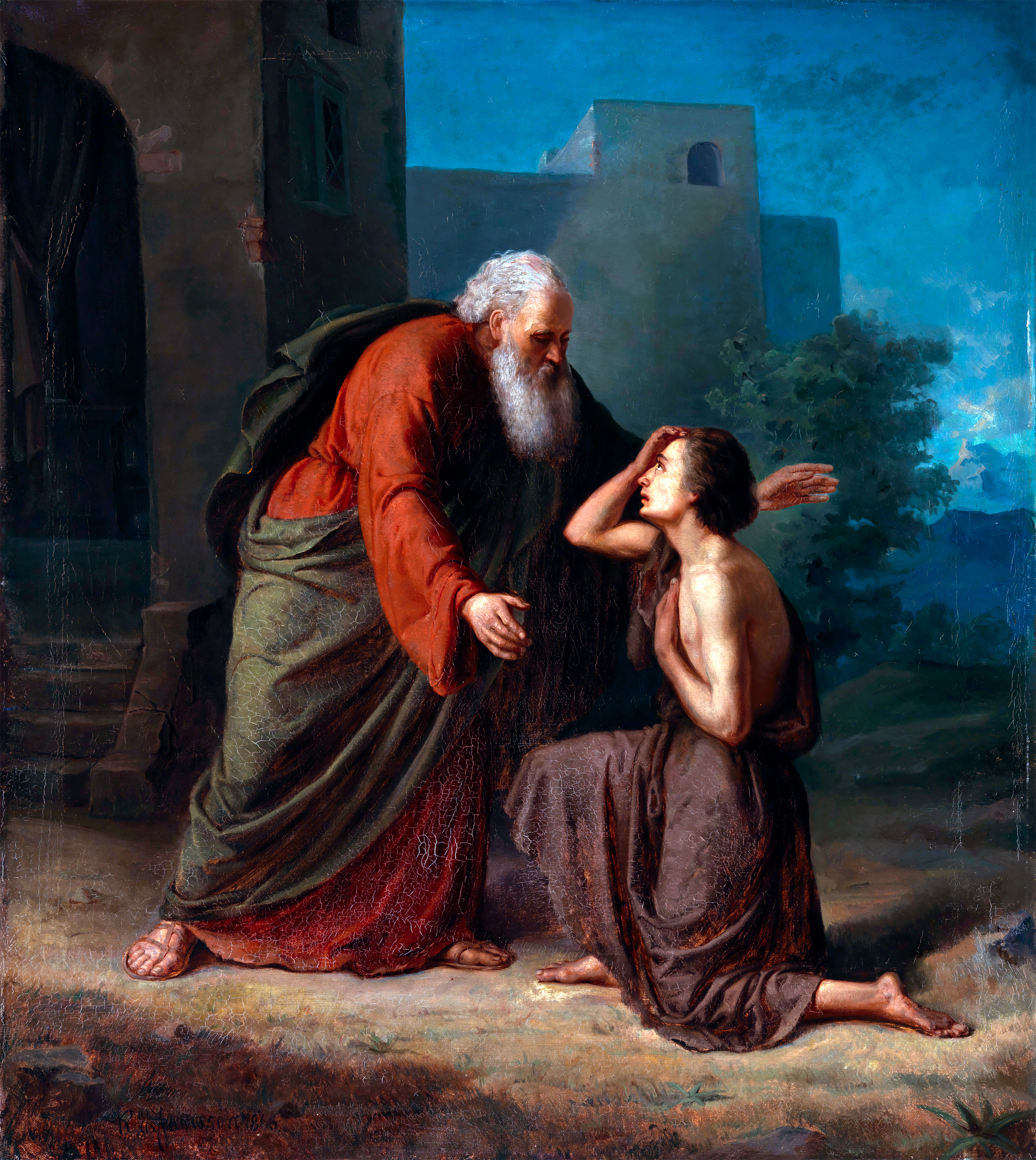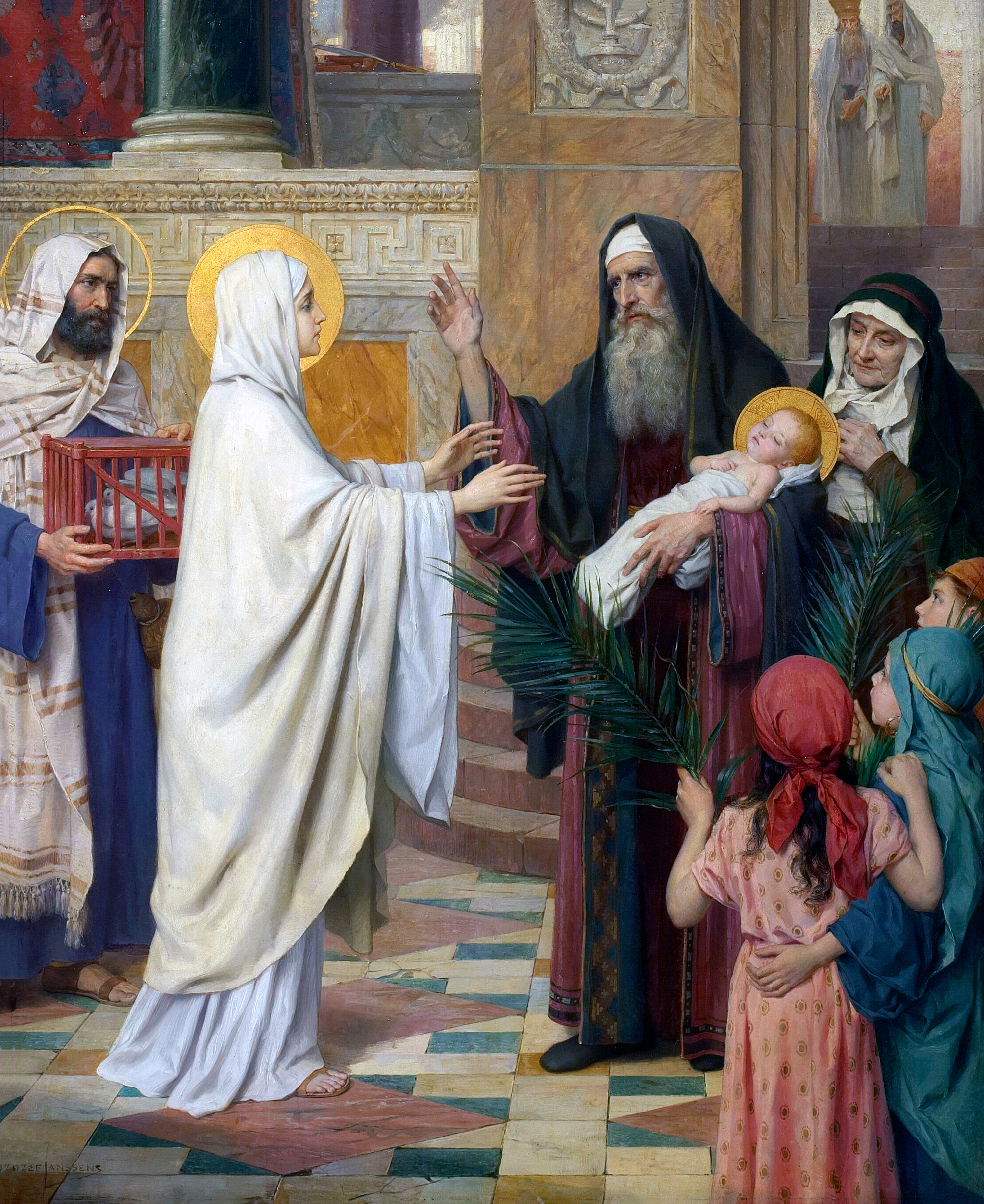In today’s Gospel we learn the value of participating in the work of our Lord. We learn that even when Jesus has taken time to heal many people, there is work He wants to involve us in, things He wants to do for others. Jesus is concerned about the crowd, and He lets His disciples know of His concern. However, the disciples respond that there is no place to get food for so many people. Jesus ignores their concern. They are thinking in human terms, not God’s.
Jesus asks them what they have and takes it from them. They are looking outside of themselves. But Jesus changes their perspective by making them look for what He needs among themselves: “How many loaves do you have?”
How many times does Jesus show us someone that needs our help or something that He is calling us to, but we feel like the problem or task is too big to be solved by us? We say back to Him: “Impossible!” Then, Jesus asks us: “What do you have?” Reminding us that what we have been given is meant to be offered back to Him to fulfill His purpose. We are not expected to solve the big problem on our own or tackle the seemingly impossible task alone. If we offer it to Him, He will multiply our gift of self, time, money, etc. in order to help us achieve whatever He has called us to.
He will be grateful for the gifts we are now offering for others and multiply them in ways we cannot imagine. And once we continue giving all that He has multiplied until whatever or whoever is satisfied, He will have multiplied so much as to leave us with more than we had.
For when we give gifts to Jesus, we are never giving away all we had to give. We are instead trusting in His power and love and He turns our giving into receiving.
What happens with the seven baskets left over? We do not know. The Gospel simply tells us there was plenty left. We can assume it’s not left behind, wasted, or unused, but instead is shared with others during other parts of their journey or enjoyed by the disciples once the crowds have dispersed.
God makes it so we will continually have something to offer even when it feels like we have nothing that will solve the problem. When it seems like everyone is satisfied, we will be left with more than enough to satisfy ourselves and share with others in the future. Jesus constantly invites us to look inside ourselves and asks: “What do you have?” Then we have to ask ourselves whether or not we are willing to give what we have so that He can multiply it for the good of others.
En el Evangelio de hoy aprendemos el valor de participar en la obra de nuestro Señor. Aprendemos que incluso cuando Jesús se ha tomado el tiempo de sanar a muchas personas, hay una obra en la que Él quiere involucrarnos, cosas que Él quiere hacer por los demás. Jesús está preocupado por la multitud y lo hace saber a sus discípulos. Sin embargo, los discípulos responden que no hay dónde conseguir comida para tanta gente. Jesús ignora su preocupación. Están pensando en términos humanos, no en los de Dios.
Jesús les pregunta qué tienen y se los quita. Están buscando fuera de sí mismos. Pero Jesús cambia su perspectiva al hacerles buscar lo que necesita entre ellos: “¿Cuántos panes tienen?”
¿Cuántas veces Jesús nos muestra a alguien que necesita nuestra ayuda o algo a lo que nos llama, pero sentimos que el problema o la tarea es demasiado grande para que lo resolvamos nosotros? Le respondemos: “¡Imposible!”. Y Jesús nos pregunta: “¿Qué tienen?”, recordándonos que lo que hemos recibido debe ser devuelto a Él para que cumpla su propósito. No se espera que resolvamos el gran problema por nuestra cuenta ni que abordemos la tarea aparentemente imposible solos. Si se lo ofrecemos, multiplicará nuestra ofrenda personal, de tiempo, dinero, etc., para ayudarnos a lograr lo que nos ha llamado hacer.
Él estará agradecido por los dones que ahora ofrecemos a los demás y los multiplicará de maneras inimaginables. Y una vez que sigamos dando todo lo que Él ha multiplicado hasta que las personas estén satisfechas, Él lo habrá multiplicado tanto que nos dejará con más de lo que teníamos. Porque cuando damos dones a Jesús, nunca estamos regalando todo lo que teníamos para dar. En cambio, confiamos en su poder y amor, y Él transforma nuestro dar en recibir.
¿Qué pasa con las siete canastas que sobraron? No lo sabemos. El Evangelio simplemente nos dice que sobró mucho. Podemos asumir que no se deja atrás, ni se desperdicia, sino que se comparte con otros durante otras etapas de su viaje o los discípulos lo disfrutan una vez que la multitud se dispersa.
Dios hace que siempre tengamos algo que ofrecer, incluso cuando parezca que no tenemos nada que resuelva el problema. Cuando parezca que todos están satisfechos, tendremos más que suficiente para satisfacernos y compartir con otros en el futuro. Jesús nos invita constantemente a mirar dentro de nosotros y nos pregunta: “¿Qué tienes?” Y luego nos toca a nosotros preguntarnos si estamos dispuestos a dar lo que tenemos para que Él lo multiplique por el bien de los demás.
 Nicole Berlucchi is a faith and family blogger (www.nicoleberlucchi.com) and Catholic blog contributor. She has worked in a number of roles in the nonprofit world, but helping people realize their vision and make an impact, seems to be her sweet spot. Nicole owns Coley B. Creative, LLC, a marketing company providing support to small businesses. She is also the author Magnify Love: Unlocking the Heart of Jesus in Your Marriage and Your Life. A native of Philadelphia, she now resides in the Nashville area with her husband, Joe, and their four children. She’s a big fan of brilliant skies, salted caramel with chocolate, books and more books. She loves sharing her journey with Jesus so that others might: Come and see.
Nicole Berlucchi is a faith and family blogger (www.nicoleberlucchi.com) and Catholic blog contributor. She has worked in a number of roles in the nonprofit world, but helping people realize their vision and make an impact, seems to be her sweet spot. Nicole owns Coley B. Creative, LLC, a marketing company providing support to small businesses. She is also the author Magnify Love: Unlocking the Heart of Jesus in Your Marriage and Your Life. A native of Philadelphia, she now resides in the Nashville area with her husband, Joe, and their four children. She’s a big fan of brilliant skies, salted caramel with chocolate, books and more books. She loves sharing her journey with Jesus so that others might: Come and see.
Feature Image Credit: Martin von Feuerstein, art.diocesan.com/stock-photo/the-multiplication-of-loaves-18635/
The views and opinions expressed in the Inspiration Daily blog are solely those of the original authors and contributors. These views and opinions do not necessarily represent those of Diocesan, the Diocesan staff, or other contributors to this blog.
